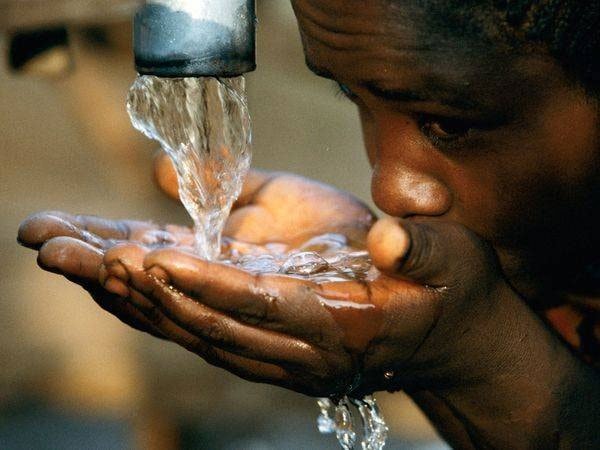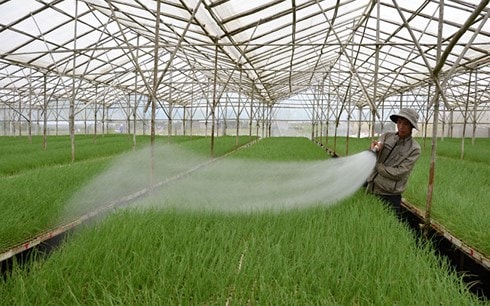Is humanity on the brink of a water war?
Lack of water resources is the main cause leading to many other unpredictable consequences, so water becomes an important topic in international forums.
Policy makers predict that with increasingly serious pollution, a growing population and the consequences of climate change, clean water will soon become a resource as precious as oil. But oil can be replaced by other fuels such as biofuels, gas... or electricity, but water cannot be replaced, and all peoples in the world need it to ensure their lives.
The United Nations (UN) estimates that the world's population will increase to 9 billion people by 2040, and the Earth's freshwater reserves will only meet 70% of demand. Environmental and development reports estimate that 1/8 of the world's population - equivalent to nearly 1 billion people - currently lack clean drinking water, and 1/5 of the world's population does not have enough clean water for daily use.
According to the Stockholm International Water Institute, dirty water kills more people than earthquakes and wars. Every day, about 5,000 children die from diseases related to dirty water, and 2 million people die from diseases caused by drinking contaminated water.
|
| Agriculture accounts for about 70% of total global freshwater withdrawals to meet food demand. |
Meanwhile, agriculture accounts for about 70% of the total global freshwater withdrawals to meet food demand. Current global freshwater supplies will not be able to meet demand, threatening the world's food supplies and consequently slowing global economic growth.
In addition, natural disasters, scarcity and reduced water quality, combined with poverty and social tensions, will contribute to increased instability, which could lead to political tensions and the collapse of many countries.
The lack of clean water is a pressing problem, but the situation is getting worse as water sources are increasingly depleted. Deserts like the Sahara are expanding; Lake Chad is losing nearly 100 meters of water each year; the glaciers of the Himalayas - once known as "Asia's water towers" - are melting at an alarming rate... seriously affecting the water flow of major rivers in Asia.
The UN predicts that by 2025, some 1.8 billion people will live in countries or regions with "absolute water scarcity" and by 2030, half of the world's population will live in water-stressed areas unless the current situation improves.
Africa, home to 15% of the world's population, holds only 9% of its total renewable water resources. Egypt, a powerful downstream country, has repeatedly threatened to go to war to resolve conflicts over the Nile. It is only because both upstream countries, Sudan and Ethiopia, are engulfed in civil war and too poor to build dams to store water that new wars have not yet broken out, but they are facing "potential water conflicts".
 |
| The UN predicts that by 2025, some 1.8 billion people will live in countries or regions with "absolute water scarcity" and by 2030, |
Cross-border competition for freshwater resources is also a reality in Asia, where per capita freshwater reserves are the lowest compared to other continents. The race for freshwater resources in Asia is putting pressure on agriculture and fisheries, destroying ecosystems, and seriously threatening long-term peace and stability here.
According to forecasts, the risk of war arising from water resources in the coming years is quite small. However, after 2022, the use of water as a weapon of war or tool of terrorism will be 40% higher than today, especially in South Asia, the Middle East and North Africa - places with severe water shortages.
As early as 2002, in a book, Russian academician Abalkin asserted that there were nearly 2,000 points in the world where wars over clean water were at risk. In April 2012, a report by US intelligence agencies on clean water security stated that floods, droughts and shortages of fresh water could cause significant global instability and armed conflicts in the coming decades, and that water abuse could threaten US national security. Conflicts over water reserves have begun to emerge, albeit locally.
The United Nations and global environmental organizations have repeatedly warned about the risks of water scarcity, calling on the world to spend 198 billion USD (equivalent to 0.16% of global GDP) annually to reduce water scarcity and reduce by 50% the number of people in the world without sustainable access to clean water sources.
Water crisis will lead to health, agricultural, economic, climate and even political crisis. Water war is an inevitable consequence that will happen in the near future if there is no appropriate policy. Water war will inevitably lead to war in all aspects, even more fierce than the oil war.

